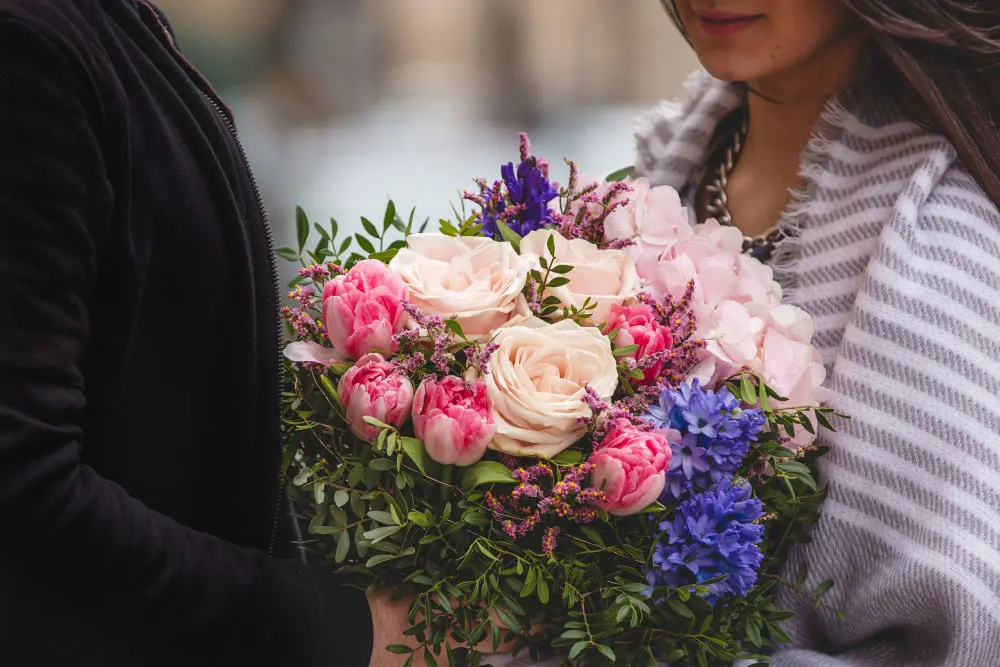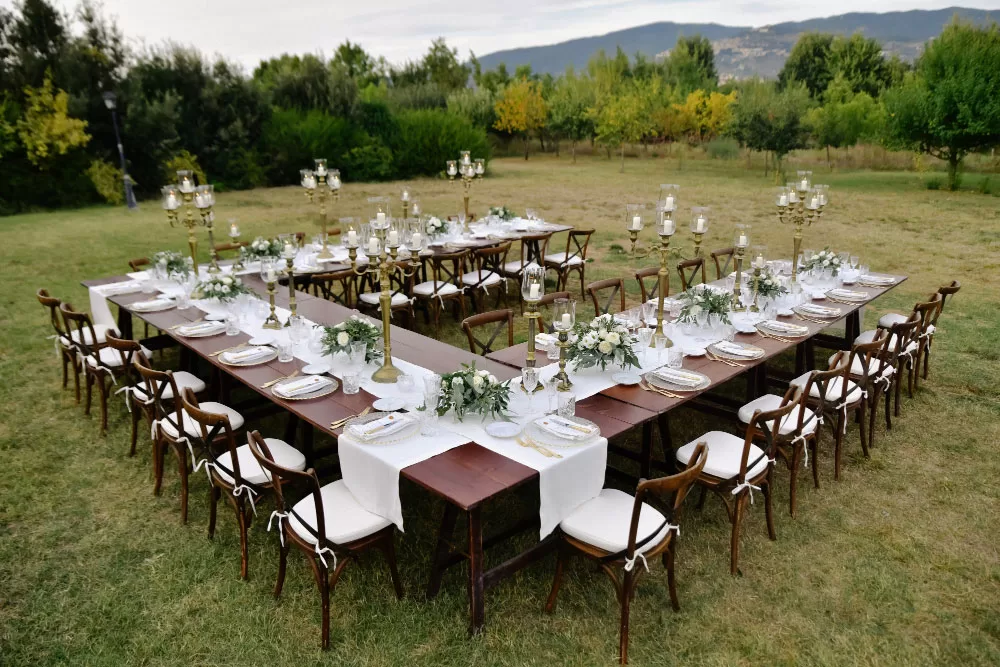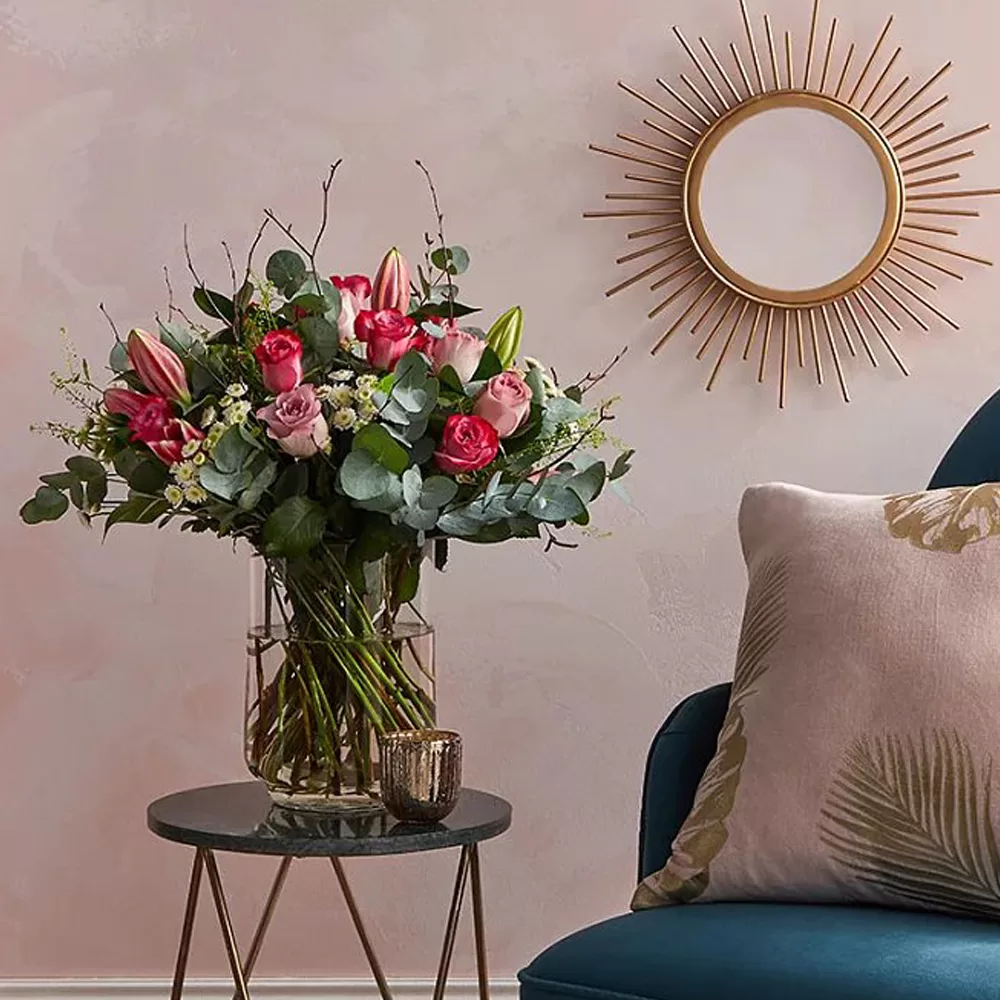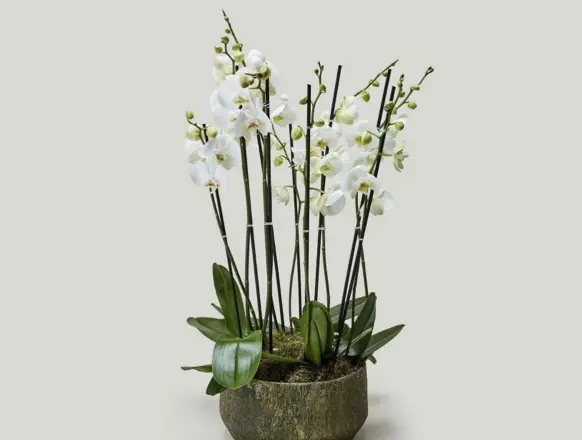Table of Contents
ToggleFlowers and their symbolic meanings
Flowers, with their vibrant colours, delicate structures, and captivating fragrances, are much more than just a visual treat. They carry rich symbolic meanings that have been passed down through generations and across cultures. This symbolism is a language in itself, a silent communication that conveys profound messages.
The red rose, for instance, universally symbolises love and passion. The daffodil, with its bright yellow hues, stands for new beginnings, making it a perfect representation of hope and rejuvenation in various cultures. The delicate lily, on the other hand, often symbolises purity and innocence, values revered in many societies. Each flower has a story to tell, a message to convey, and a feeling to evoke. It’s no wonder that they form an integral part of our special occasions, serving as silent yet eloquent messengers.
Understanding the symbolism of flowers offers us a deeper perspective on their role in our celebrations. It helps us appreciate how they contribute to the emotional depth of our experiences, making them more meaningful and memorable.
The role of flowers in weddings
Weddings are beautiful occasions, filled with love, joy, and hope. Flowers, with their symbolic meanings, contribute significantly to the atmosphere of these celebrations. They are not just decorative elements but symbols of the love and commitment that the couple shares.
Consider the bouquet that the bride carries as she walks down the aisle. This isn’t merely a pretty accessory. The choice of flowers in the bouquet often reflects the couple’s feelings and hopes for their future together. For instance, red roses might signify deep love and passion, while lilies might symbolise purity and innocence. The groom’s boutonniere, typically matching the bridal bouquet, is a symbol of his dedication and loyalty.
The wedding venue, adorned with flowers, becomes a visual narration of the couple’s unique love story. The archways scattered with ivy and roses, the centrepieces showcasing the couple’s favourite blooms, the delicate petals that the flower girl scatters – all these are not just decorative choices. They are deliberate expressions of the couple’s feelings and aspirations, making the occasion more personal and emotionally sound.
The significance of flowers in funerals
Flowers, with their symbolic meanings and visual beauty, provide comfort and solace during times of grief. They are a traditional part of funerals, serving as a strong expression of respect, love, and farewell.
The choice of flowers for funerals often reflects the deceased’s personality or the family’s sentiments. Lilies, symbolising the restored innocence of the soul of the deceased, are a common choice. Roses, each colour with its specific meaning, are also often used to express love, respect, or friendship.
Funeral wreaths and arrangements contribute to the atmosphere of reverence and reflection. They silently communicate the mourners’ shared feelings, providing a sense of communal support and consolation. This is a testament to the profound role that flowers play even in our most dark occasions, highlighting their significance beyond mere aesthetics.
The use of flowers in birthdays and anniversaries
Birthdays and anniversaries are joyous occasions that celebrate life and love. Flowers add to these celebrations with their vibrant colours and symbolic meanings. They are not just gifts but expressions of love, admiration, and good wishes.
Consider the tradition of giving birthday flowers. The flowers chosen often reflect the individual’s personality, the season of their birth, or the sentiments of the giver. For instance, daffodils, As we saw it symbolising new beginnings, are often gifted to celebrate the start of another year. Roses, standing for love and admiration, are a popular choice for anniversaries, with the rose’s colour reflecting the nature and depth of the couple’s relationship.

Flowers in cultural and religious ceremonies
Flowers play a crucial role in many cultural and religious ceremonies worldwide, signifying various beliefs and traditions. They are not just offerings but tangible expressions of faith and devotion.
In Hindu ceremonies, for instance, flowers are offered to deities as a sign of devotion and respect. The specific flowers used, such as the marigold or the lotus, carry symbolic meanings in the Hindu faith. In many Native American cultures, flowers are used in rituals and ceremonies as symbols of the interconnectedness of life and nature.
Flowers are also integral to many Christian ceremonies. For instance, lilies, symbolising purity and resurrection, are often associated with Easter. In these contexts, flowers are not just decorations but significant religious symbols, reflecting the profound role they play in our spiritual lives.
Psychological effects of flowers on mood and memory
Beyond their symbolic meanings and cultural significance, flowers have a direct impact on our mood and memory. Research has shown that flowers can induce positive emotional responses, reduce stress, and enhance memory performance.
Flowers’ vibrant colours and pleasant fragrances can stimulate our senses, evoking positive emotions and boosting our mood. This might explain why we often give flowers to cheer someone up or express our love and affection.
Research has also found that flowers can facilitate memory performance and attention. The presence of flowers during special occasions might enhance our memory of these events, making them more memorable and meaningful.
How to care for and preserve flowers on special occasions ?
Flowers from special occasions often hold sentimental value. Preserving these flowers can help us keep those memories alive. Here are some tips on how to care for and preserve flowers.
Keep the flowers hydrated and away from direct sunlight to prolong their freshness. To preserve flowers, you might consider methods like pressing, drying, or using silica gel. Each method has its benefits and drawbacks, so choose the one that suits your needs and the type of flowers you have.
Preserved flowers can be kept as keepsakes or used in crafts and decorations. They serve as a tangible reminder of the special occasions in our lives, enriching our emotional connection to these events.
Flowers, The Powerful Communicators of Special Occasions.
Flowers are not just decorative elements but powerful communicators, expressing our deepest emotions and enhancing our experiences.
As we go ‘Beyond Aesthetics,’ we appreciate the integral role of flowers in our celebrations. We understand that each petal, each fragrance, each colour tells a unique story, making our special occasions more meaningful and memorable.
So next time you see flowers at an event, take a moment to appreciate their beauty and symbolism. And remember, they are not just there for their aesthetic appeal. They are there to speak a language that goes beyond words, a language that resonates with our human emotions and experiences.






